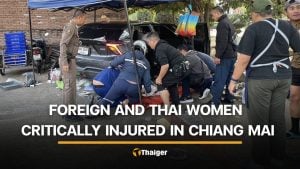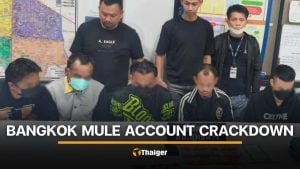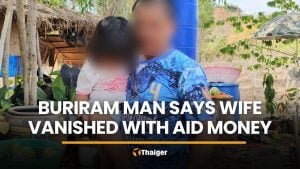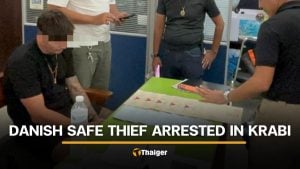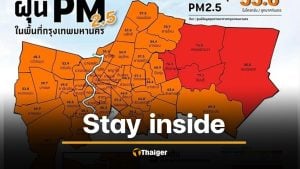Top 10 Thai words/phrases you need to know
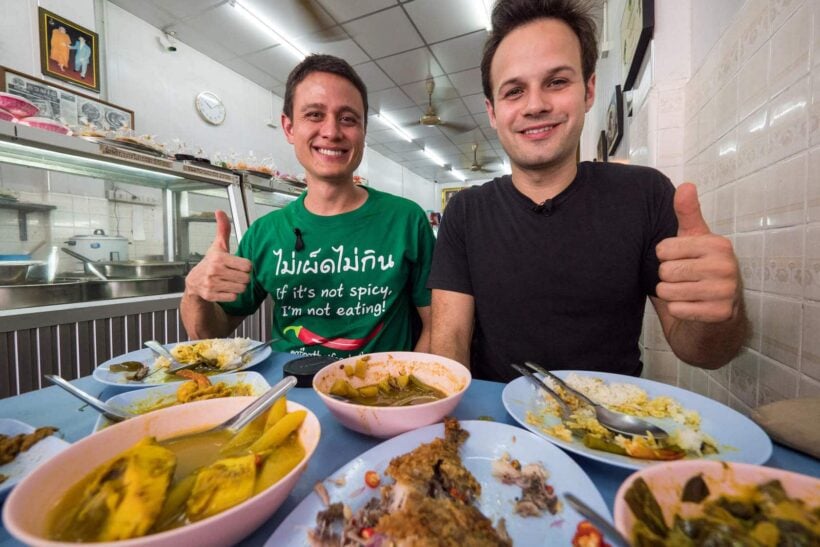
Photo: eatingthaifood.com
Living or travelling in a foreign country can be tricky at the best of times, we are often outside of our comfort zones especially when it comes to the local language, and that can hinder our experience. One of the best ways to get kudos with the Thai people is to learn a little bit of their local lingo. They find it endearing (and usually amusing) and will help you get what you need, get where you want, and help you get the best price too. Here is The Thaiger’s Top Ten Thai Phrases/Words you need to know.
But if you want to go beyond this, you can learn Thai by downloading an app that will enable you to enrich your language repertoire each day. So, instead of using one word and then switching to English, you can actually strike up a conversation with a local in Thai.
1. Sawadee (krub / kah) – Hello
This is how we say hello in Thailand, “sawadee krub.“ if you are male and “sawadee kah“ if you are female. This is often spoken together with the traditional Thai greeting referred to as the wai, which consists of a slight bow, with the palms pressed together in a prayer like fashion by your face. The higher the hands are held in relation to the face and the lower the bow, the more respect the giver of the wai is showing. The wai itself has Indian origins and is similar to their Namaste.
2. Sabai Dee Ru (krub / kah) – How are you ?
Following on from sawadee, is “sabai dee mai krub / kah“, literally meaning “hello, how are you.“ You will hear this phrase everywhere you venture in Phuket. The answer to this typically is “sabai dee khob khun krub / kah“ meaning ‘fine thank you’. If you are not fine you can say “mai sabai“ meaning not fine.
3. Chai – Yes. Mai – No
These two words will help you no end when you are out and about on the streets of Thailand. “chai chai“ is a common answer here in the kingdom meaning ‘yes yes’, alternately “mai“ when it precedes any other word means ‘no’, for example “mai ron“ means it is not hot.
4. Mai Pen Rai – Never mind/No worries
This is a handy phrase when you are negotiating anything in the markets or with the taxi drivers around the island. It basically means ‘thanks but no thanks’ or ‘it doesn’t matter’ in a friendly way. If you’re in a bargaining situation this is the seller’s opportunity to come back and offer you a better price. You can choose to accept or walk away politely saying “mai pen rai“. The next shop will no doubt have exactly what you wanted anyway, and you now know where to start your haggling.
5. Dai – Can & Mai Dai – Cannot
Together with “chai and mai ( yes and no ),“ “dai and mai dai (can and cannot)“ are two words that are important in Thailand for getting you to places, buying your goodies and keeping your stomachs full. As previously mentioned “mai“ in front of any word means ‘no’, when spoken with “mai pen rai“ you have a full sentence almost with ‘never mind, cannot’.
6. Pood Thai Mai Dai – I cannot speak Thai
Sometimes when we say a couple of phrases the locals become excited and quite rightly think we can speak Thai, so this statement is a good one to be able to say off the cuff to help with any situation. This can also be followed with “kow jai mai“ (do you understand) or “mai kow jai“ (I do not understand), once again almost an entire sentence in Thai.
7. Nee Tao Rai – How much? Pang – Expensive. Took – Cheap
When living in Phuket and of course visiting our beautiful island, negotiating for anything and everything is all part of the fun and becomes almost like a sport. If you feel like being brave you could say “lot noi dai mai“ (can you give a little discount). Remember though that many of the locals are living on or near the poverty line and what may just be a couple of dollars to you is a lot of money to them.
8. Naam – Water
Keeping up your fluids while walking the streets of Phuket or hanging out on the beach is very important. Lack of hydration is one of the biggest threats to tourists, especially the combination of humidity and heat together. Asking for “naam“ on the side of the road or in restaurants is a super important word to keep you on your game. Adding “ron“ (hot) or “yen“ (cold) to “naam“ will help you get exactly what you need.
9. Hong Naam – Toilet
Asking for the toilet in any destination and country is a great phrase to know. “Hong“ (room) and “naam“ (water) literally translated is ‘water room’. Adding “hong naam yu ti nai“ is ‘where is the toilet?’, however just “hong naam“ whilst looking desperate will do just fine.
10. Chok Dee (krub / kah) – Good Luck
This is a phrase we hear a lot in the Kingdom of Thailand. It is a wonderful way to wish anyone the best of luck. It is also used in social situations when sharing beverages together, like in Western countries when we say ‘cheers’, Thais say “chok dee“.
Bonus phrases…
Mai Phet – ‘Not Spicy’. When you know it’s going to be too spicy.
Aroi maak – ‘Very tasty’. When you want to compliment the chef.
Chun mai ruk ter – ‘I don’t love you’. For emergencies.
Sanam Bin yu ti nai – ‘Where is the airport?’. Dire emergencies.
Latest Thailand News
Follow The Thaiger on Google News:







